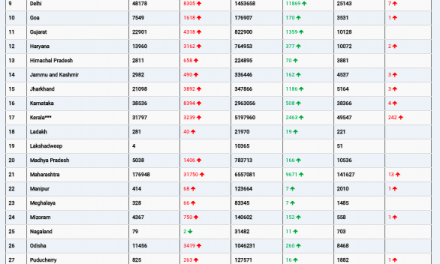In a significant move towards promoting healthier dietary choices among consumers, the Food Safety and Standards Authority of India (FSSAI) has approved a proposal to display nutritional information about Total Sugar, Salt, and Saturated Fat in bold letters and a larger font size on the labels of packaged food items. This decision was made during the 44th meeting of the Food Authority, chaired by Shri Apurva Chandra, the Chairperson of FSSAI.
The approved amendment to the Food Safety and Standards (Labelling and Display) Regulations, 2020, aims to empower consumers by providing clear and prominent nutritional information. This change will help individuals better understand the nutritional content of the products they consume, facilitating healthier dietary decisions.
Key Features of the Amendment
The draft notification for this amendment will be made available for public comment, allowing suggestions and objections from various stakeholders. The key features of the amendment include:
- Nutritional information about Total Sugar, Total Saturated Fat, and Sodium content will be displayed in bold letters.
- The font size of this information will be relatively larger to ensure better visibility.
- The information will also include the per serving percentage (%) contribution to Recommended Dietary Allowances (RDAs).
Regulations 2(v) and 5(3) of the FSS (Labelling and Display) Regulation, 2020, specify the requirements for mentioning serving size and nutritional information on food product labels.
Implications for Public Health
This amendment is not only a step towards empowering consumers but also a significant move in the fight against Non-Communicable Diseases (NCDs). Clear and distinguishable labelling will help consumers make informed choices, thereby contributing to public health and well-being. NCDs, such as heart disease, diabetes, and obesity, are major health concerns globally, and improved labelling practices are a part of the global effort to combat these diseases.
Ongoing Efforts to Prevent Misleading Claims
FSSAI has been proactive in issuing advisories to prevent false and misleading claims by Food Business Operators (FBOs). Some of these advisories include:
- Removal of the term ‘Health Drink’ from e-commerce websites, as it is not defined or standardized under the FSS Act 2006 or its regulations.
- Directives to remove claims of ‘100% fruit juices’ from labels and advertisements of reconstituted fruit juices.
- Guidelines on the use of terms such as wheat flour/refined wheat flour.
- Restrictions on the advertisement and marketing of ORS with any prefix or suffix.
- Clarifications on nutrient function claims for multi-source edible vegetable oils.
These efforts ensure that consumers receive accurate information and are not misled by marketing claims.
Stakeholder Involvement
The 44th meeting of the Food Authority saw participation from senior officials from various ministries, including the Ministry of Health and Family Welfare, Ministry of Commerce, Ministry of Consumer Affairs, Food and Public Distribution, Ministry of Law and Justice, and the Ministry of Micro, Small and Medium Enterprises. Representatives from state governments, union territories, industry associations, consumer organizations, research institutes, and farmers’ organizations were also present, reflecting a broad consensus on the importance of this initiative.
Conclusion
The FSSAI’s decision to enhance nutritional labelling on packaged foods is a crucial step towards promoting healthier eating habits and improving public health. By making nutritional information more accessible and understandable, consumers will be better equipped to make informed choices, ultimately contributing to a reduction in the prevalence of diet-related non-communicable diseases. The forthcoming public consultation on the draft amendment will provide an opportunity for further refinement and stakeholder engagement, ensuring that the final regulations serve the best interests of consumers.












